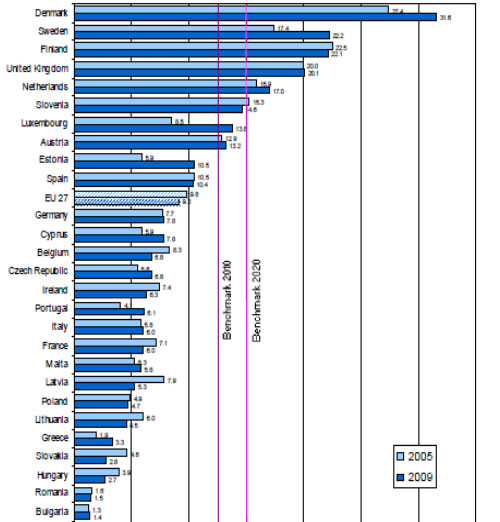In the European Commission’s vision, “adult learning is a vital component of EU education policies, as it is essential to competitiveness and employability, social inclusion, active citizenship and personal development across Europe” (http://ec.europa.eu/education/lifelong-learning-policy/adult_en.htm). This is especially true in times of economic crisis, when there is an urgent need for new skills and amid the current demographic changes across the European continent. The European Commission has highlighted the key role of adult learning in lifelong learning strategies and as part of policies for competitiveness and employability; social inclusion; and active citizenship. The BeLL study will highlight the benefits of liberal adult education from the perspective of learners and will provide empirical evidence on the role of adult education on the aspects cited by the European Commission. Liberal adult education is characterized as any intentional educational activity which is non-vocational and driven by personal interest and recreational learning motives (European Adult Learning Glossary, 2001). It is offered in the form of seminars, study circles and courses related to handicrafts, music, arts and culture, health, languages, politics, computer skills and other IT studies. Liberal adult education is provided by non-formal education and training institutes, e.g. adult education institutes, community learning centres, and educational institutes like folk high schools as well as private learning providers, such as language schools. The effect of these courses is obvious to the participants and the providers, e.g. improving wider skills of daily life like social activities, health issues, economic benefits, social wellbeing etc. (see Maninnen 2010; 2012). The BeLL study aims to provide empirical evidence to support these claims, drawn from a large sample of participants in ten European countries.
The European statistics stress that the potential of adult learning has not been yet fully exploited in the European Union. As the table below shows, the participation in lifelong learning is unsatisfactory, but also in a dramatic decrease.
Participation of adults in lifelong learning in European countries

Percentage of the adult population aged 25-64 participating in education and training (2009)
Learning provisions within the adult education sector are part of the learning structures offered by national politics and governments. They differ a lot within European Countries. To get an overview on the situation of adult education from those countries which participate in the BeLL research study see: Adult-education-within-BeLL-partner-countries.pdf
References:
- Boateng, Sadiq Kwesi (2009): Significant country differences in adult learning. In: Eurostat. Statistics in Focus. Population and social conditions, 44/2009, pp. 1-12. http://epp.eurostat.ec.europa.eu/cache/ITY_OFFPUB/KS-SF-09-044/EN/KS-SF-09-044-EN.PDF European Commission (2001): Making a European area of lifelong learning a reality. Brussels: EU Commission.
- Manninen, J. 2010. Wider Benefits of Learning within Liberal Adult Education System in Finland. In: Horsdal, M. (ed.) Communication, Collaboration and Creativity: Researching Adult learning. Odense: Syddansk Universitetsforlag.
- Manninen, J. 2012. Liberal Adult Education as Civic Capacity Builder? Lifelong Learning in Europe, 1/2012, 69-78. http://www.lline.fi/files/issues/1_2012.pdf
- European Adult Learning Glossary 2008. http://ec.europa.eu/education/more-information/doc/2010/adultglossary2_en.pdf
